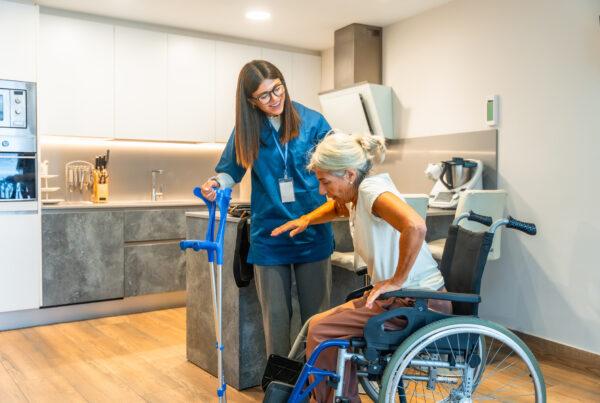Teamwork techniques are employed across all industries but are especially important in healthcare settings when patient’s lives and well-being are at stake. Every person on a healthcare team brings with them various experiences, skill sets, and resources that lead to better overall health outcomes for patients. The benefits of teamwork in healthcare settings are undeniable and vast, and with the right training, you will be poised to take on a rewarding career in a healthcare team quickly after graduation.
Continue reading to discover why teamwork is always encouraged in healthcare settings.
1. Healthcare Pros Know that Teamwork Makes Tasks Go Smoothly
New research funded by the Canadian Health Services Research Foundation has demonstrated that healthcare teams are more responsive and adapt more quickly to changes when they work together.
For instance, if you decide to pursue a career as a health care aide after graduating from Academy of Learning Career College (AOLCC), then you might sometimes be called upon to assist with certain tasks like specimen collection, wound care, and more. In each of these cases, your teamwork skills will likely come in handy. For example, if a patient suddenly requires nasogastric intubation (the insertion of a feeding tube through the nose and into the stomach) a doctor or a nurse will usually make the decision on whether the procedure is necessary, and health care aides assisting with the procedure will need to work closely with healthcare professionals as well as the patient to make sure that the tube is inserted as smoothly and as comfortable as possible.
By working together as a team, healthcare professionals can help make sure that each procedure is conducted smoothly and in a timely manner.
2. Teamwork and Communication go Hand in Hand
Communication in the healthcare sector is incredibly important. By communicating effectively with their team members, healthcare professionals like medical office assistants and health care aides ensure that no details about a patient get lost—whether it’s updating a patient file or passing along important information to a co-worker.
That’s why developing your communication skills is an important part of any healthcare training. As you complete your courses at AOLCC, you’ll soon learn how to best communicate with patients and healthcare professionals alike so that everyone is on the same page and working together. When working within a multidisciplinary team in a healthcare setting, there will always be competing viewpoints and conflicting ideas, but with the proper communication strategies, these issues can be approached in a way that ensures everyone’s input is considered and that things run smoothly.
3. Teamwork in Healthcare Settings Allows Learning to Continue Throughout Your Career
As you start your healthcare courses, you’ll complete important theory courses that will teach you everything you need to know to begin a career in healthcare. But a top college doesn’t end your education there. At AOLCC, we know that hands-on training helps students apply what they learned in the classroom to a real-life setting and gain an even deeper understanding of their chosen career path.
One of the reasons for this is that hands-on learning allows you to work closely with peers and industry professionals—which is a perfect opportunity for you to learn handy tips and tricks that can help you truly excel after graduation. Even throughout your career, you’ll learn from the experiences of your co-workers as you continue to grow professionally with your team.
Contact an advisor today to find out more!






